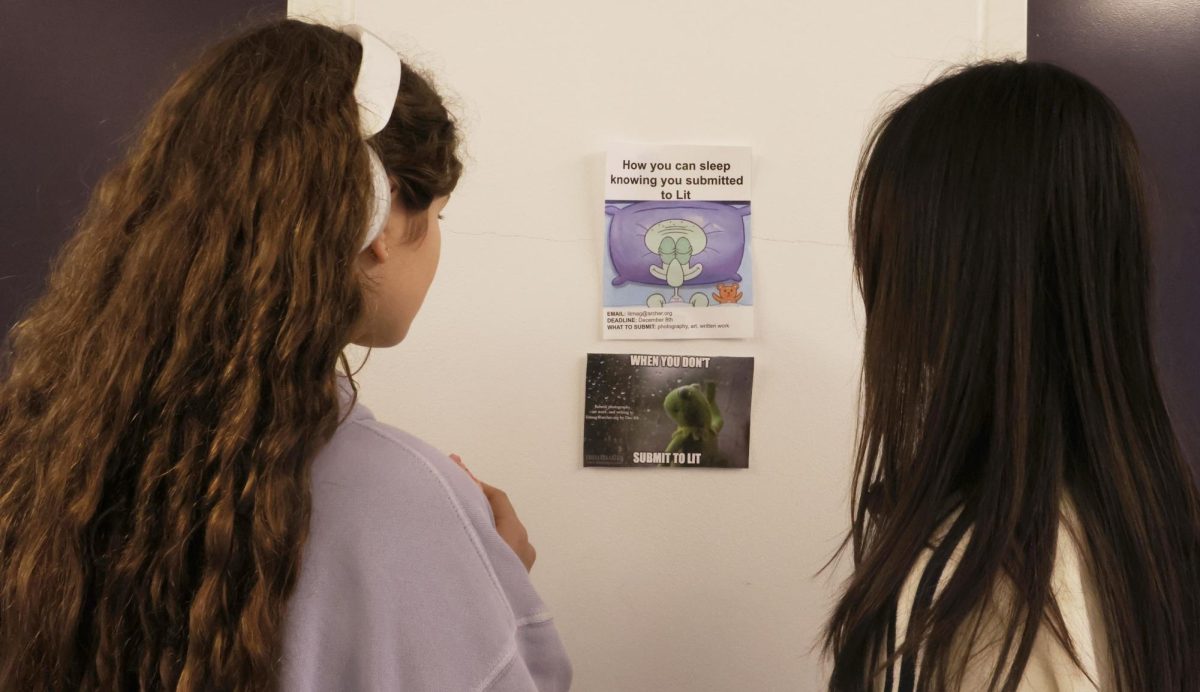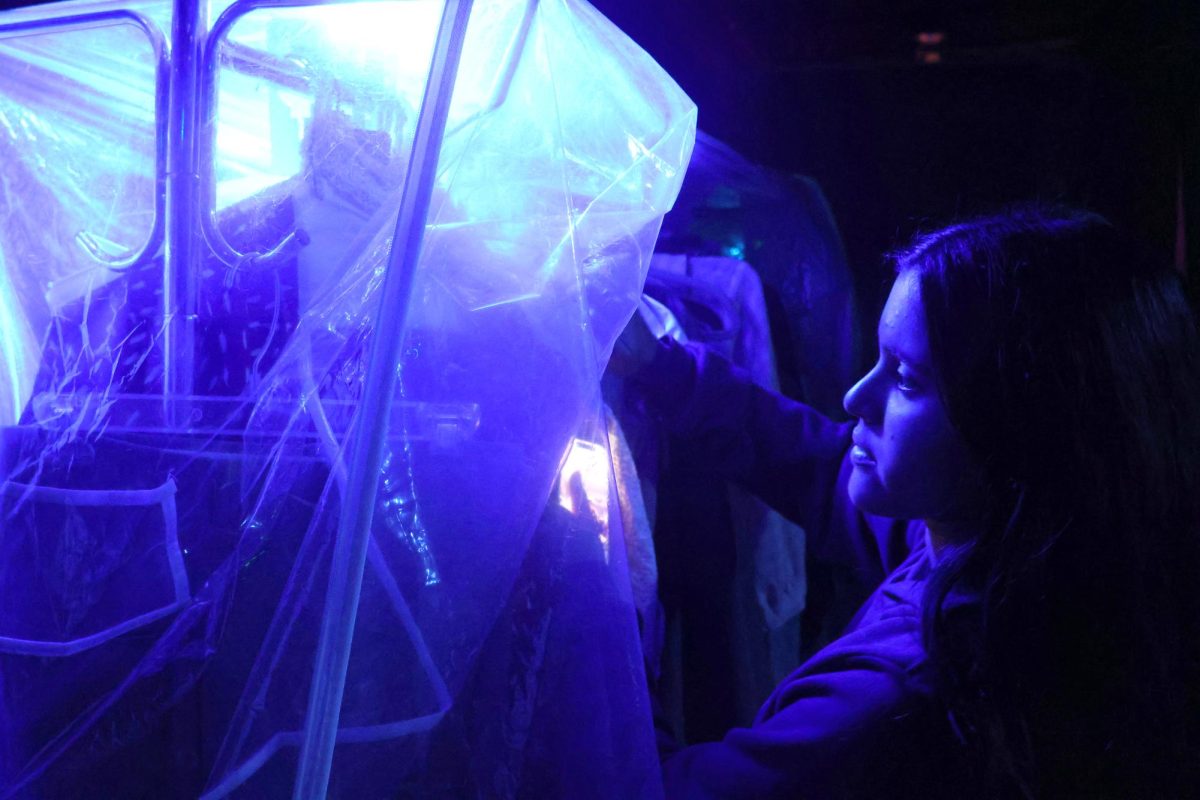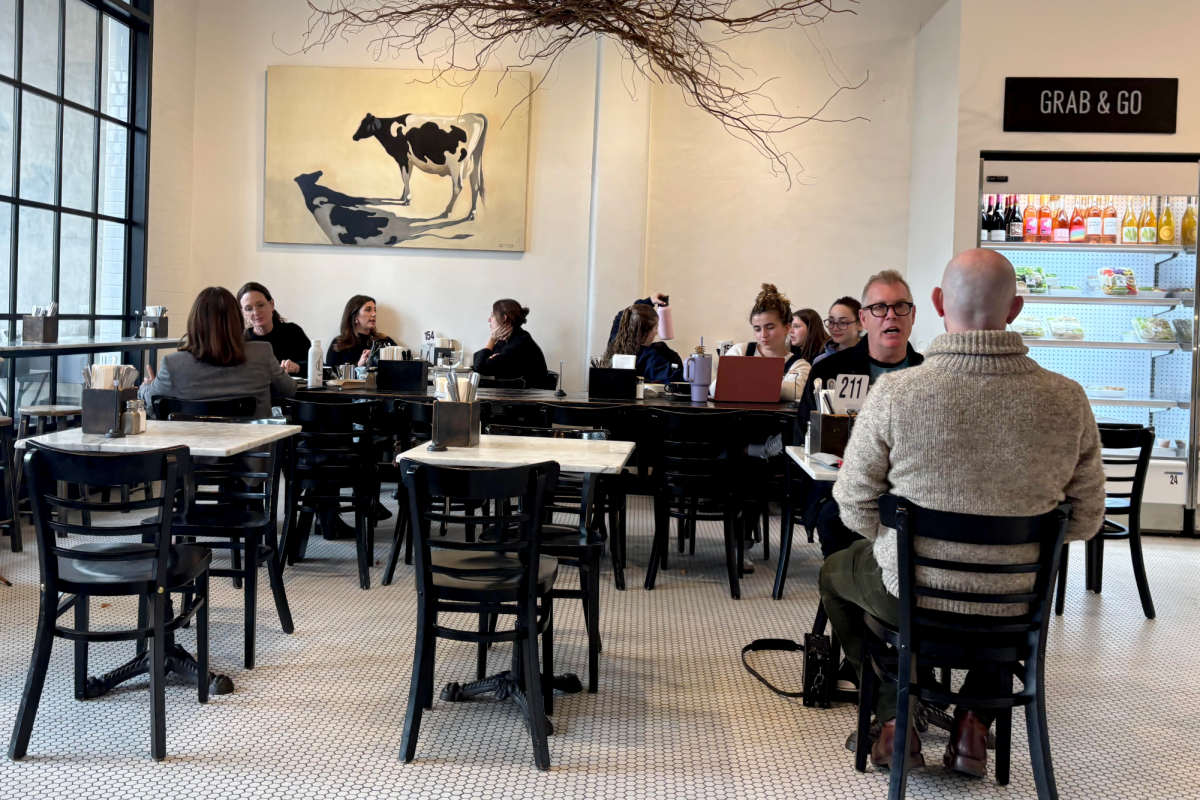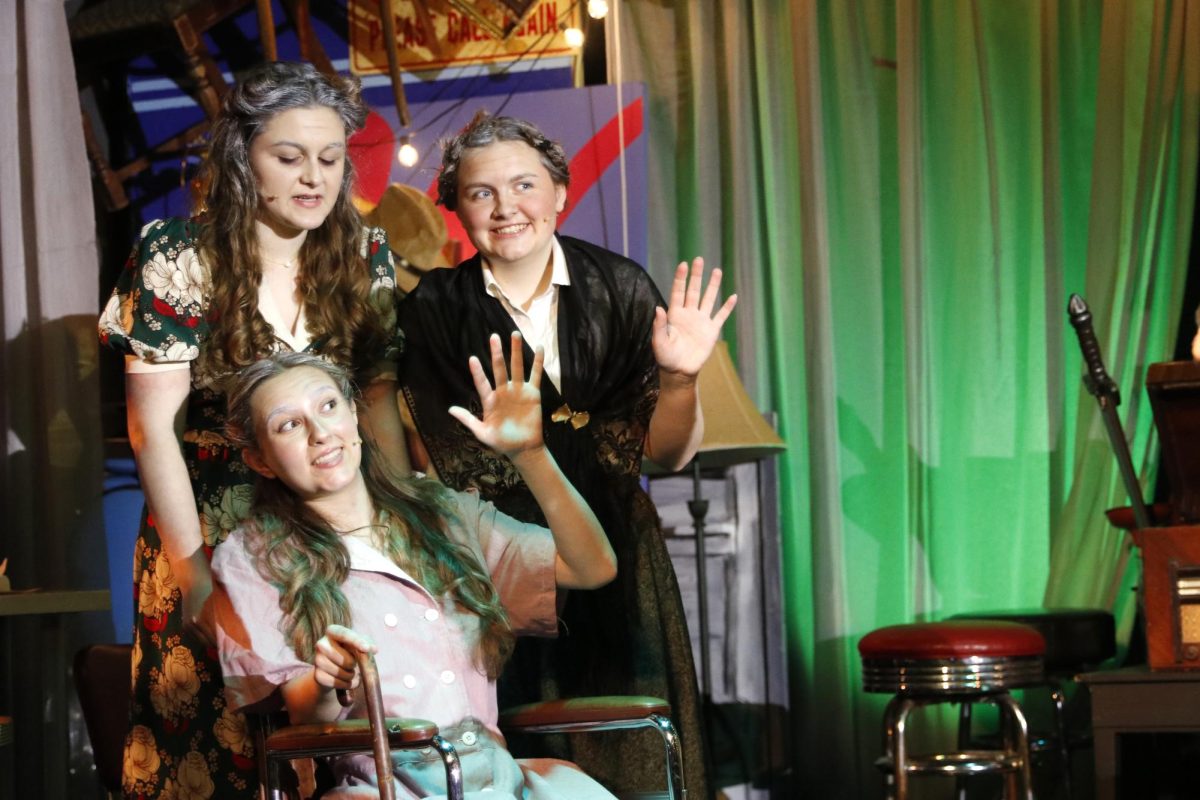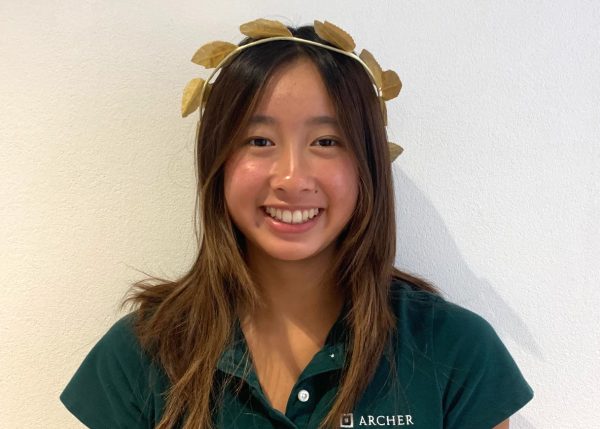When students hear the words “lit mag,” they may think of the many posters and memes on Archer’s walls — even in unexpected places like bathroom stalls — urging students to submit their literary works. However, according to English teacher James Russo, the purpose of Archer’s literary magazine, “Pillars of Salt,” remains unknown to many students who don’t know the true purpose of it.
Archer’s literary magazine, known as the lit mag, is a digital compilation of upper school students’ works created twice a year during winter and spring. The student-run magazine welcomes diverse submissions, including short stories, poems, photography, art pieces and memoirs. The last volume was the 2022-2023 edition, featuring the theme “Liminal.” In the past, the department printed physical magazines, but it has since transitioned into a digital format, and only contributors will receive a printed copy of it.
Sophomore Natalie London is the lit mag’s prose editor, and this is her first year being involved with the magazine. Her role is to edit short stories and memoirs.
“It’s really valuable that Archer students, specifically those who want to speak their stories and show their voice through writing and artwork, have a way to do that, and I think that’s really powerful that Archer offers something like that,” London said. “It’s definitely a great opportunity. You’re surrounded by other people who also value the same things, and the book is always gorgeous, so I’m really excited to see it when it’s done.”
The process of assembling the book was initially only open to Archer’s creative writing class but is now open to all interested upper school students. Senior Ella Gray is the lit mag’s Editor-in-Chief, and she compiles all of the submissions into a document and assigns editors pieces to edit.
“I joined as a freshman online, and I wasn’t entirely sure what [the lit mag] was, but I saw how all the seniors were so dedicated to making it happen,” Gray said. “I would stay after class, and I would help them edit some pieces. Then, in 10th grade and 11th grade, I was the only underclassman working with a bunch of seniors, and it was just really nice to see how dedicated all the older grades are and to now be in that position.”
English teacher Kathleen Keelty is the current faculty advisor but wasn’t available for an interview, so the Oracle reached out to Russo Lit Mag’s previous faculty adviser for two years, where he oversaw the magazine’s deadlines and organizational systems. Russo said he has seen the publication develop over the years as students become more proactive and confident in their abilities to take on leadership roles. In addition, Russo said he likes to write creatively in his free time because it is a special way to express thoughts about the human experience.
“Creative writing just allows us to access that place inside of us that wants to express pain, joy and all of those emotions that — quite frankly, in today’s world I think — kind of get dull because we spend a lot of our time online, and sometimes we use that as a deflection to not access some of these deeper emotions,” Russo said. “There’s something really powerful about feeling something and expressing it in a creative fashion.”
In addition to editing the magazine, London submitted a poem she wrote about her rescue dogs that portray the metamorphosis they underwent over several months and the journey of emerging from their shells.
“I have two dogs who I rescued, and I don’t know what they went through before,” London said. “So, I was wondering ‘What if they could talk?’ If I knew what they were thinking, what would they say? And I hope [my poem] is maybe something that they would say.”
The next steps for the lit mag’s upcoming 2023-2024 winter edition, which will be published by early March, are to create a layout and choose a theme. When submissions open again for the magazine’s spring edition, Russo encourages students to not only glance at the lit mag posters as they pass by but also contemplate submitting their works as a means to express their individuality.
“Some folks don’t even know they have that voice inside of them. You might have something sort of building inside of you where you want to express something through poetry or prose, but some people are hesitant to do that because it is kind of putting yourself out there,” Russo said. “If you know you’re a little bit gun shy about that, I would encourage folks just to continue to push themselves to do that because I do think that it’s such a healthy way to kind of comment on why we are the way we are.”



